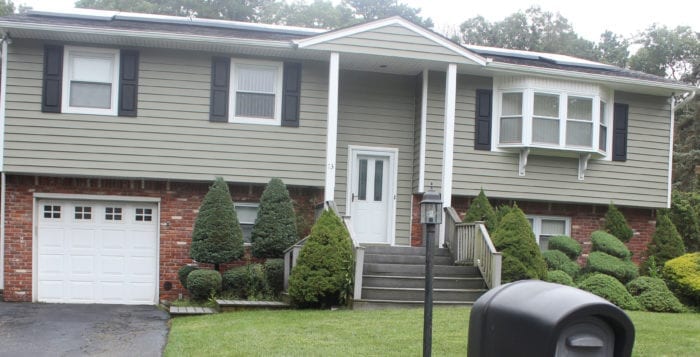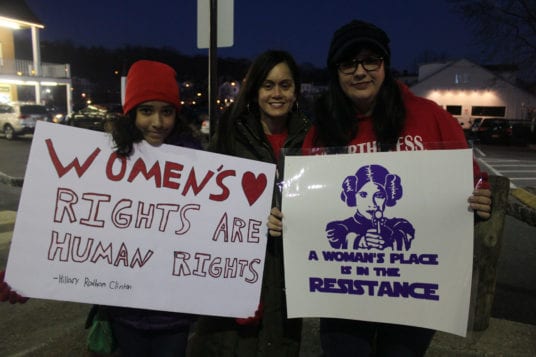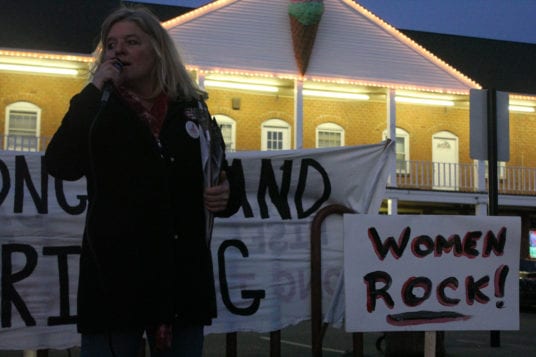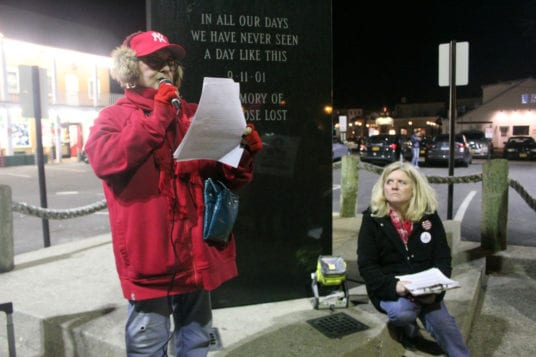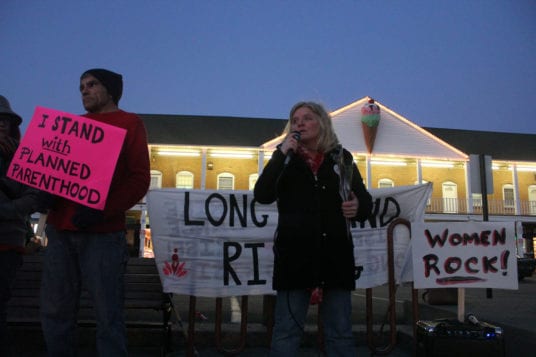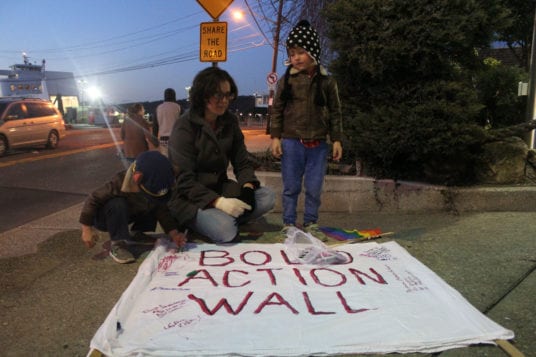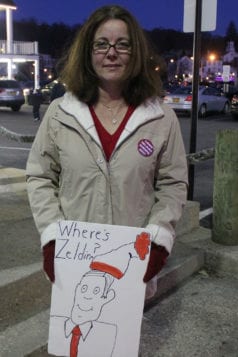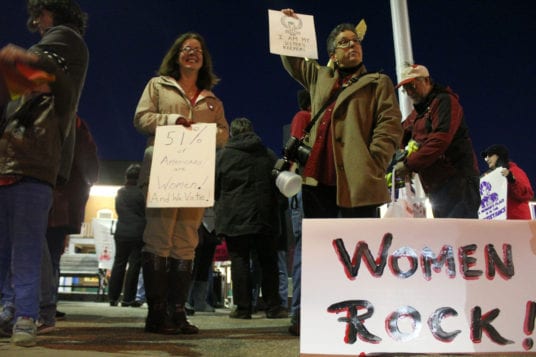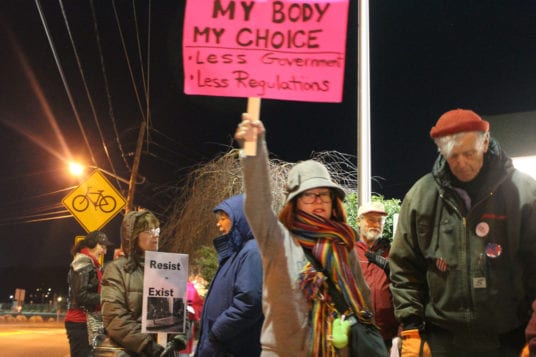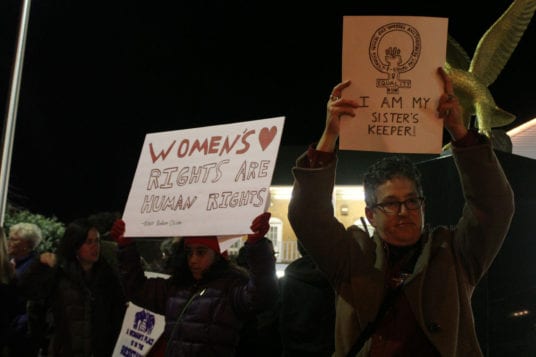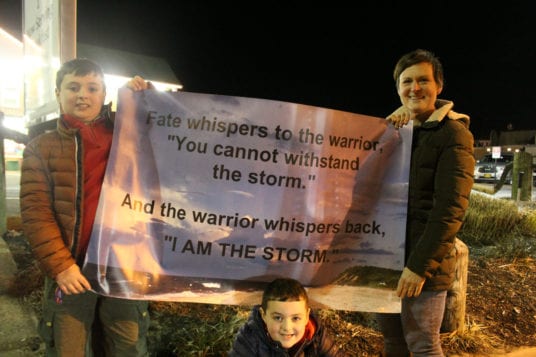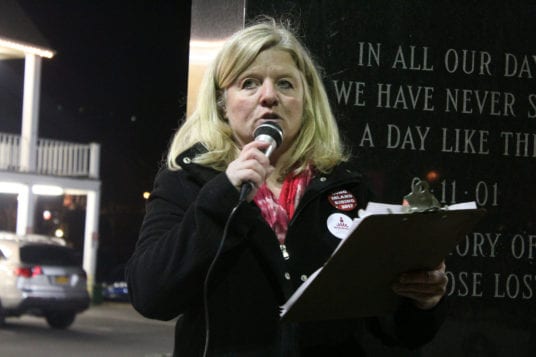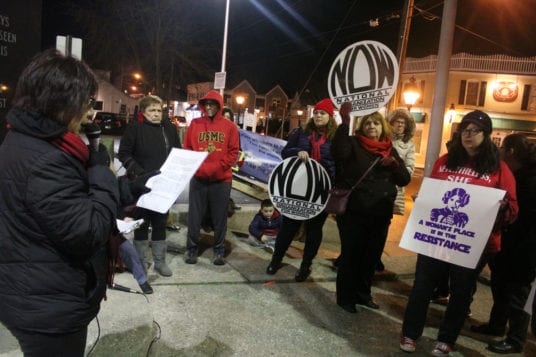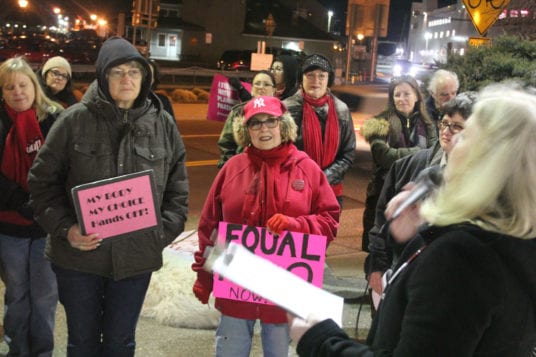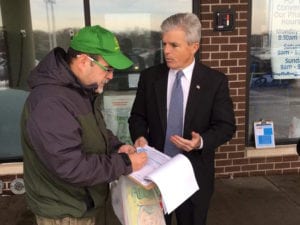Residents in and around Miller Place are rushing to the defense of a group home for adults with autism and other developmental disabilities that will soon open on Henearly Drive after some neighbors said they didn’t want the facility on their block.
The neighbors, interviewed earlier this month, said they believe the Developmental Disabilities Institute home — which will house six, low-functioning autistic adults over 21 years old and full-time staff members — will damage the family-friendly community’s quality of life by increasing traffic flow and lowering property values of homes on the street.
“It doesn’t make any sense — why you would put this in the middle of a neighborhood, how is that fair?” said Janice Simon, a Henearly Drive resident.
Her concerns were not aimed at the six individuals who will live in the home, she said, but the overcrowding of vehicles and possible dumpsters around the property. Other neighbors agreed, adding unease toward the group home’s rotation of employees.
“So sad that we have people so heartless in our town … makes me sick.”
—Maureen Le Blanc
“I don’t want strangers up and down my block … all day and night,” one resident said. “[With] everybody smoking and on their phones and hanging out — no way — it doesn’t work like that.”
But these voices of opposition were not shared by all.
Between Sept. 12 and 14, in a closed Mount Sinai-Miller Place Community Facebook page, waves of support for the group home, as well as anger and shame toward those against it, came from more than 50 North Shore residents in the comments section, when a TBR News Media article about the incoming group home and its critics was posted.
“So sad that we have people so heartless in our town … makes me sick,” Maureen Le Blanc wrote of the neighbors.
Sound Beach resident Patti Kozlowski, who previously lived in Miller Place, said she was horribly ashamed by the comments made by residents on Henearly Drive.
“I say, if you don’t want a group home next door to you, let your neighbors vote to see if they want you to be next door to them,” Kozlowski said. “They key word is group home. It’s the home for people to live. It needs to be a big house in a nice neighborhood. That’s where it belongs.”
Eileen Walsh said no one is better than anyone else.
“We can and should all learn a lesson in kindness and acceptance from DDI residents,” she wrote on the Facebook page. “The only people upset about this are selfish elitists.”
Rich Pistone said the residents on Henearly aren’t setting a good example.
“Teach your children diversity [and] that we occupy this planet with many other people … some a tad bit different than the norm,” he wrote. “Residents on Henearly better get over themselves.”
Suzanne Cloke said the comments made by the residents on Heanerly Drive do not speak for the entire community.
“[The original] article put a bad taste in my mouth, making Miller Place look like a town full of horrible people that would steal candy from a baby’s mouth,” she said. “There are people who would welcome the home with open arms and would also treat the residents with respect and compassion.”
“I would really like them to think, what if it was their child?”
—Wendy Flammia
Several residents who posted in the group also vouched for the reputation of DDI, a Smithtown-based nonprofit founded in 1961 that has launched more than 30 group homes throughout townships in Suffolk and Nassau counties.
“DDI is an amazing company and the developmentally disabled population consists of wonderful individuals who deserve to live in a community just like every other person,” wrote Ryan Nelson. “What some of those people are saying is disgraceful.”
A majority of the people who commented said their own lives have been touched by the special needs population.
Kim-Marie Duckett of Miller Place Road, who travels three hours a day to a group home in Pennsylvania to visit her 18-year-old autistic son, whose behavior she said was too extreme for local homes, said in an interview the Henearly Drive facility will be a welcome addition to the town. Her son will never be able to live on his own, Duckett said, and this could end up becoming a living destination for him down the line.
“It’s just such a positive thing for me because when my son does age and become an adult, the better chance he will have to be closer to me with this home,” she said.
Duckett said the neighbors’ complaints regarding the home boils down to a lack of education, which she’s willing to provide for them.
“It’s just ignorance and people just looking for something to complain about,” she said. “It chokes me up that people have such an opinion. They have no idea what it’s like living in this situation. The individuals have a right to be somewhere. DDI is excellent and I’m sure the house will be kept nice. Shame on Mrs. Simon. I would take the opportunity to use my big mouth and she would feel really small by the time she walked away from me.”
Deanna Landy-Marino, of Tyler Avenue in Miller Place, worked at DDI as a college student and has a 6-year-old nephew with special needs. She said a DDI home is usually the most beautiful home in its area.
“It has a wonderfully cut landscape, there’s no uptick in traffic, it causes no aggravation and the residents of the house are wonderful,” she said, not understanding concerns over an increase in traffic. “There are a bunch of cars all over Miller Place, whether it’s a DDI house, my house or somebody else’s house. If anything, they should pay attention to some of the people that actually speed down their roads. I don’t think it’s going to happen from a DDI house.”
“It chokes me up that people have such an opinion. They have no idea what it’s like living in this situation. The individuals have a right to be somewhere.”
—Kim-Marie Duckett
Kathi Yaldei, a Mount Sinai resident whose 25-year-old son has special needs with life-threatening seizures, challenged the neighbors’ reasoning for complaining.
“I think it’s a cover-up and not what their real issue is,” Yaldei said. “I think they used that as an excuse when in reality they don’t want the residents there. The individuals should be welcomed to any area that a group home has purchased.”
As the mother of a 15-year-old daughter with special needs, Wendy Flammia, who lives on Gristmill Lane in Miller Place, wants to introduce her daughter to the neighbors against the group home.
“She’s a loving kid, and when I bring her out, she makes people smile,” Flammia said. “I would really like them to think, ‘what if it was their child?’ What if, God forbid, tomorrow their child had a brain injury and needed a place for them to go, how would they feel then? It really upsets me, but I think the Facebook comments have shown there’s a lot more support for it.”
But Henearly Drive resident Dominick Caroleo, who is among those in opposition to the group home, said he volunteers at local churches helping cook for homeless people and those with disabilities and maintains that his stance has nothing to do with the special needs individuals.
“It’s not the people we’re against,” he said. “It’s what the home is going to do to the appearance of the neighborhood. There’s always going to be traffic moving back and forth over there and people coming in and out of the house with different shifts and all that [and] they’re not paying property taxes. It’s just going to bring our property taxes up. Time’s going to tell.”
Miller Place resident Taniya Faulk, who has been diagnosed with osteogenesis imperfecta, also known as brittle bone disease, said the neighbors are basing their concerns on hypothetical situations.
“Let’s not build around the possibility of a problem,” she said. “If there is one, then address it at the point where the problem occurs. I don’t understand what the big uproar is. It upsets me to think that I grew up in a town that is this close-minded.”


